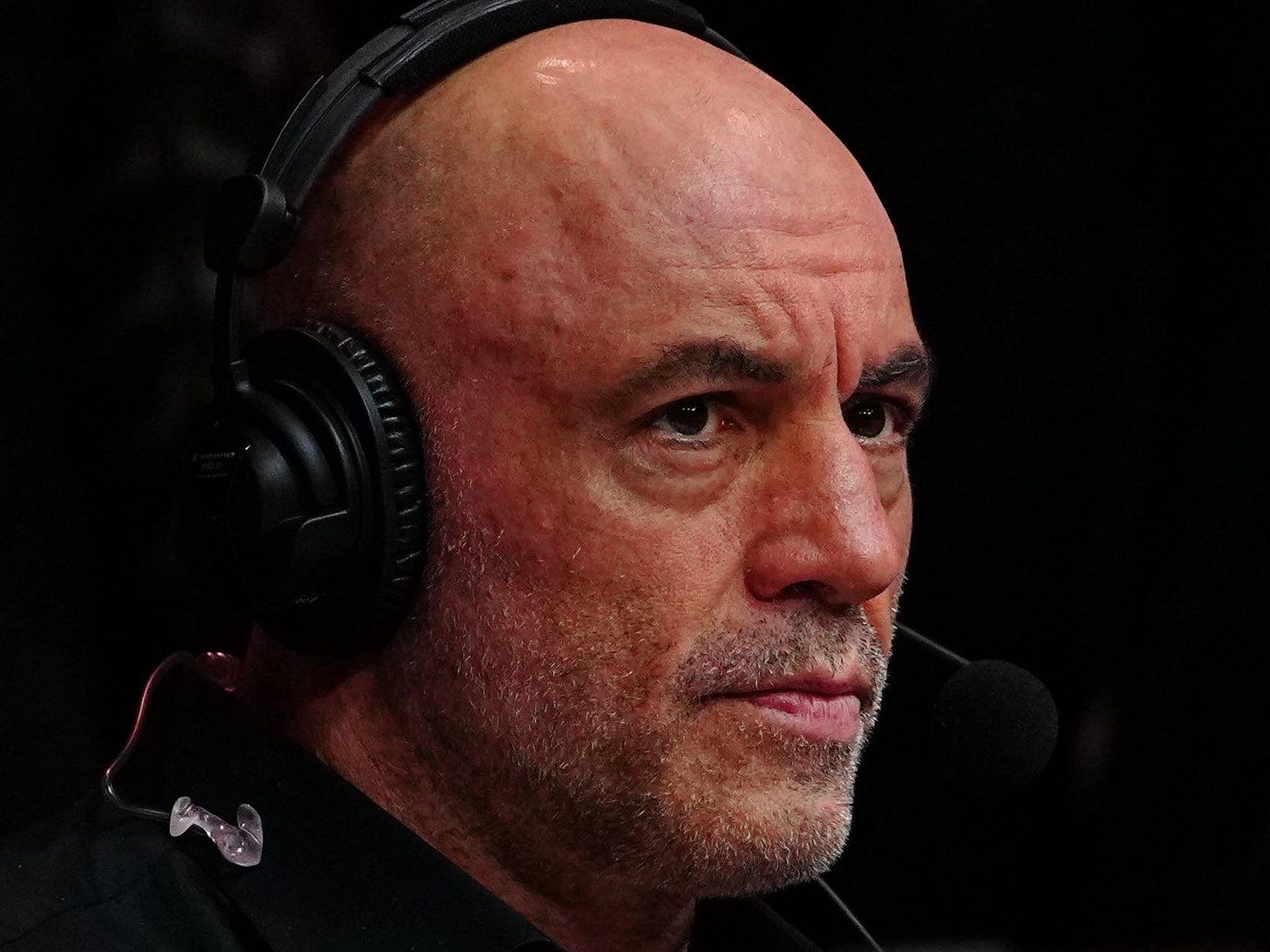What Do You Want, Joe Rogan or Real Journalism?
Two recent major studies show how the consumption of, and trust in, American news outlets is dangerously polarised - Europe should take note, warns Christian Christensen

(This is a translation of an article first published in Sweden’s Dagens ETC)
Two major studies have been released on citizen perceptions and use of journalism, and the results from the US ring alarm bells that Europe should not ignore. The studies paint a picture of the US as a nation where the differences in consumption of, and trust in, journalism along political and ideological lines are enormous.
The long-term implications for US democracy are potentially devastating.
In a study from the Reuters Institute at Oxford University, just 30% of people polled in the US said that they “trust most news most of the time.” That put the US 39th out of 48 countries included in the report. The 2025 study also marked the first time that more people in the US get their news from social media (54%) than from television (50%).
How do these numbers compare to Europe? Here in Sweden, for example, 53% of respondents said they “trust most news most of the time,” which placed the country 9th. Unlike Americans, Swedes are demonstrating declining interest in social media as a source of news, with 45% saying they get news from these platforms as compared to 56% in 2016. This number is well behind the 63% of Swedes who still use television for news.
And who do Swedes trust the most? Public service broadcasters Swedish Television and Swedish Radio were trusted by 76% of respondents, followed by 73% for local and regional newspapers. Every major television, radio and newspaper news source in Sweden had trust levels over 50%, and most were over 60%.
US news outlets don’t come close to these high numbers. The most trusted sources among all Americans were local TV news at 59%, followed by local newspapers at 55%. The only other news outlet with more than 50% trust? The BBC. And that isn’t even a US outlet.
While these are depressing numbers from the US, more disturbing is when trust levels are broken down along political lines. Another study released by the Pew Center illustrated just how split is the US in terms of where citizens get their news.
Respondents were provided with a list of 30 news and information outlets. Of those who identified as “Democrat” or “Leaning Democrat,” six news outlets were trusted by more than half (50%) of respondents: ABC, NBC, CBS, PBS (US public broadcasting), CNN and the BBC. The number of news outlets trusted by more than a third (33%) of those respondents was 13.
What about those who identified as “Republican” or “Leaning Republican?” Only one outlet was trusted by over half of Republican respondents: Fox News (56%). After Fox News, the next most trusted media source among Republicans was Joe Rogan’s podcast at 31%.
Let that sink in.
Out of 30 options, there was only one US news outlet trusted by over a third of Republican-leaning respondents: and it is a news channel that paid almost $800 million to settle a defamation case after it was shown that the channel knowingly lied to viewers about voting irregularities in the 2020 elections. Consider also that the second most trusted information source among Republicans is a comedian and UFC fighting commentator who regularly peddles in disinformation and conspiracy theories.
Do we see similar differences in trust here in Sweden when we compare left and right? Many would see public service broadcasting as perhaps the most “polarising” form of media. Yet, numbers in Sweden show us that, with the exception of supporters of the nationalist Sweden Democrats, public service broadcasters are trusted by citizens on both the right and the left (from around 55% to 85%). High levels of trust in public service broadcasting are common across Europe.
In addition, trust in journalism in Sweden is not limited to just one or two dominant actors, but includes a diversity of national and regional outlets. And the Reuters study showed that Swedes are expressing decreasing levels of trust in right-wing “alternative” news outlets.
Compare this to the US, where the gap between the left and right is enormous.
Democrats and Republicans now live in very different information worlds. While Democrat-leaning Americans still exhibit trust in a variety of news outlets, those on the political right have largely abandoned all trust in mainstream news media with the exception of Fox News. Republicans in the US are obtaining information filtered through an increasingly narrow, weaponised range of outlets.
Make no mistake, saying there is trust in journalism isn’t the same as saying all journalism is good. A great deal of journalism is in need of critical self-reflection and reform. Academic researchers have been making this argument for almost a century. But there is a huge difference between imperfect journalism and disinformation, just as there is a huge difference between keeping a critical perspective on journalism and rejecting it entirely.
Declining trust in US journalism is running parallel with declining trust in US social institutions such as courts, schools, universities, government, and health authorities. This is a toxic situation that creates an informational vacuum quickly filled by lies, myths and disinformation.
The lesson for Europe from the US, therefore, is that journalism isn’t just an industry or profession, but it’s a national resource. And, like all resources, it needs to be protected through things like adequate funding of independent public service media, media subsidies, regulation that protects domestic media from invasive foreign social media platforms, and strengthened whistleblower and free press laws.
And the practice in the US of politicians and Big Tech Billionaires smearing the profession of journalism as inherently corrupt is one Europe must reject.
The alternative is a dystopian information landscape that serves only those in power, leaving citizens in the dark.
Christian Christensen is Professor of Journalism at Stockholm University. Bluesky: https://bsky.app/profile/chrchristensen.bsky.social


